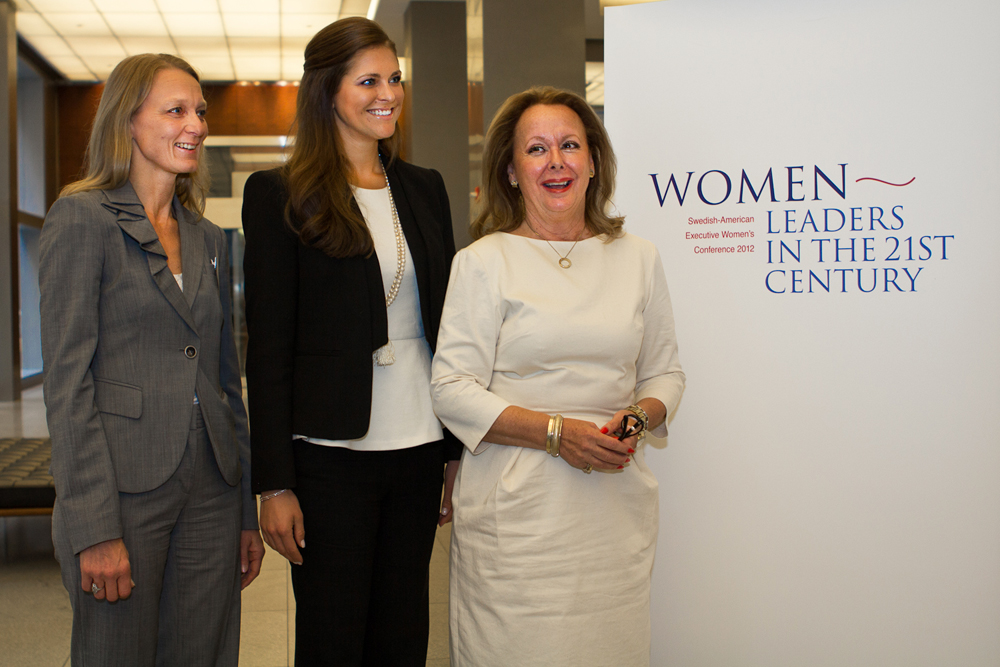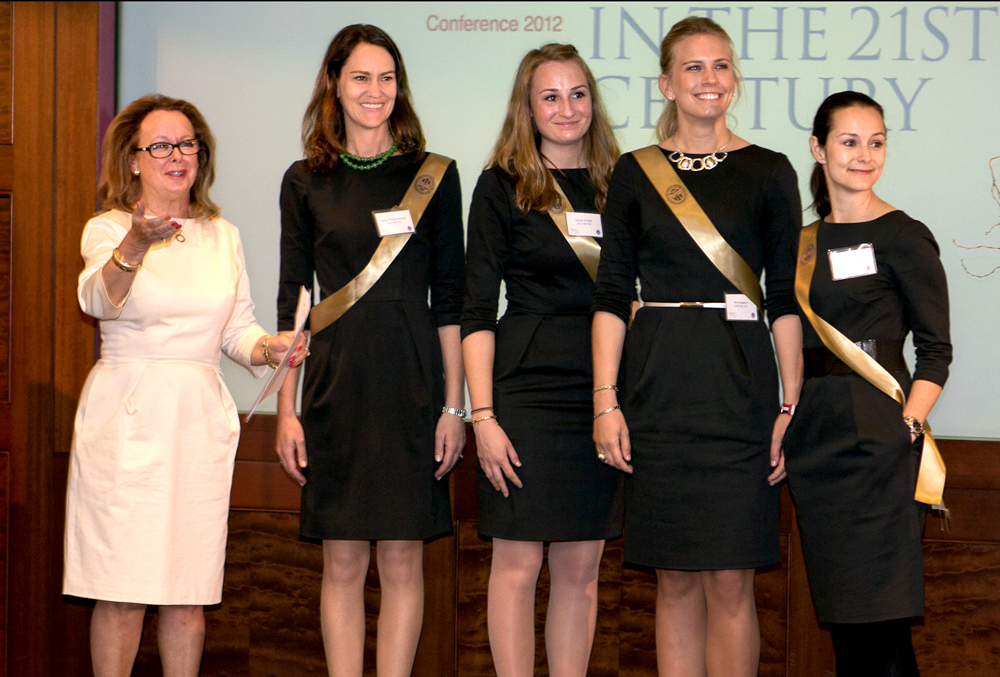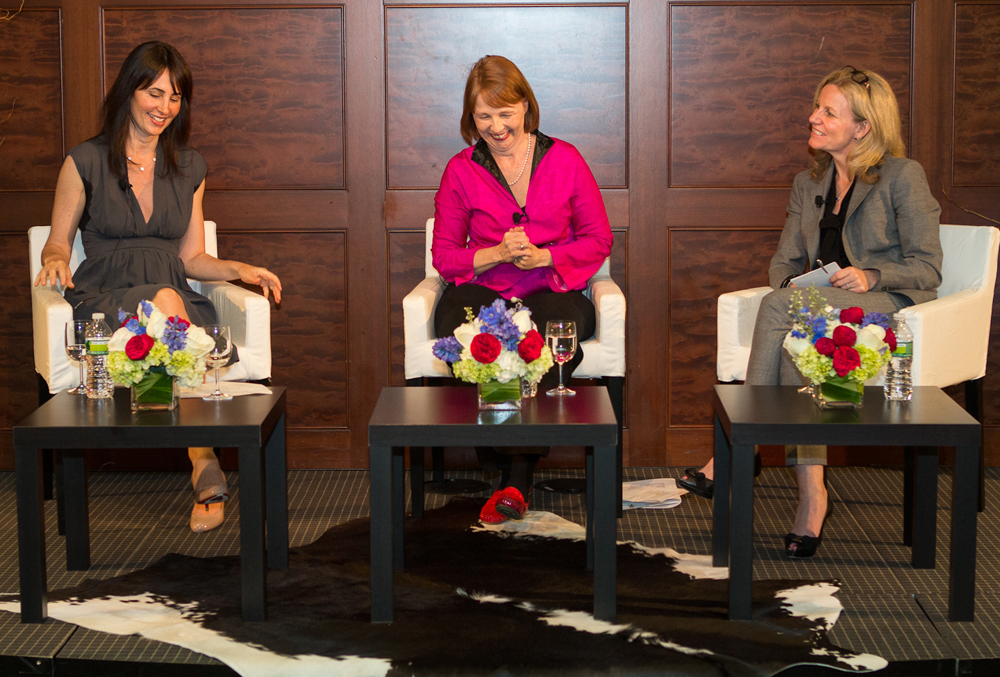'End of Men?'
Is modern, postindustrial society simply better suited to women, as the Atlantic Magazine article of 2010 implied?
-
 Charlotte Brandin, executive director World Childhood Foundation USA; Princess Madeleine of Sweden; and Renée Lundholm, president of the New York Swedish-American Chamber of Commerce Photo: Hanna Aqvilin
Charlotte Brandin, executive director World Childhood Foundation USA; Princess Madeleine of Sweden; and Renée Lundholm, president of the New York Swedish-American Chamber of Commerce Photo: Hanna Aqvilin -
-
"No men, no whining and no complaining," said Renee Lundholm, president of the New York Swedish-American Chamber of Commerce. She continued: "Here today women are helping women; we are building a great network and get inspiration."
It was the 2012 Swedish-American Executive Women's Conference, held at Price Waterhouse in Midtown Manhattan, and over 200 women leaders met up for the occasion.
More photographs from the event: We Incredible Women -
 SACC's Renée Lundholm and, Jennie Purushothaman, Carol Ginman, Anna Aggeryd and Caroline Stjernström, were all wearing the ELSA-dress from Maja Svensson's brand <a href="http://www.elsaandme.com/">ELSA AND ME.</a>
SACC's Renée Lundholm and, Jennie Purushothaman, Carol Ginman, Anna Aggeryd and Caroline Stjernström, were all wearing the ELSA-dress from Maja Svensson's brand <a href="http://www.elsaandme.com/">ELSA AND ME.</a> -
-
H.R.H. Princess Madeleine was in good company. Phenomenal, prominent speakers and moderators explored the theme of this year’s conference: New Trends—Innovative Business. Women with all due deference … in fact, most managers are women today, and women in their 30s earn more than men of the same age. And for every two men who get a college degree this year, three women will do the same. Speaker Dr. Sofia Ulver-Sneistrup, associate professor at Lund University, talked about “Trends you cannot ignore,” and referred to The Atlantic Magazine’s notorious article
"End Of Men" in the Atlantic
“The end of men may be a brutal way to put things, but no one can ignore the fact that women are going toward brighter times.”
Speaker Johanna Fagrell Köhler, CEO at Mobiento, one of the top 10 mobile agencies in the world, agreed and has noticed that even though the upper reaches of society are still dominated by men, fewer men want to become leaders nowadays. That women are more suitable to become leaders in this post-industrial economy where strength and size have no matters.
“Women are more diverse, flexible, understanding, less risk-taking and don't focus on to “Pinka revir” (mark territory) as men. And we are better in communication, which is a major component for a successful business.”
Unevenly and slowly, women are getting very important in the new modern economy, a world that is getting more and more dependent on communication, interaction and speed. -
 "That day you went home on Friday afternoon and forgot everything about work until Monday morning is in the past," said Christina Wayne. "Stop feeling guilty, it's impossible for me to answer all my emails. You have to select otherwise you will miss out. If it's urgent they will find you anyway," Helene Barnekow said.
"That day you went home on Friday afternoon and forgot everything about work until Monday morning is in the past," said Christina Wayne. "Stop feeling guilty, it's impossible for me to answer all my emails. You have to select otherwise you will miss out. If it's urgent they will find you anyway," Helene Barnekow said. -
This conference was also about exchanging advice and experience; how do you achieve a balance in life between private and professional when you have 200 unreplied emails every day? When should you take a step back? How do you create an innovative business in a world that demands you to be online and available 24/7? And how do you react to comments and information about you and your company on the internet.
-
A sampling of many comments expressed at the networking luncheon at The Princeton Club of New York:
I am here today to meet and learn from my role models, networking and collect valuable contacts, learn and be updated about new trends, get inspiration and create a vision for myself, get help to define success and have the guts to go after it. -
Indeed, inspiration, learning and vision was the red thread throughout this year’s conference. In the long view, the modern economy seems to be a place where women hold the cards, so the best is to learn from each other. -
Since it's launch in 2003, the Swedish-American Executive Women's Conference has grown to become one of the Chamber's marquee events. For reason if you ask this writer. We've earlier covered the trend from a Swedish perspective: http://tinyurl.com/6wofnmc
-
Text & photographs: Hanna Aqvilin
-
-
